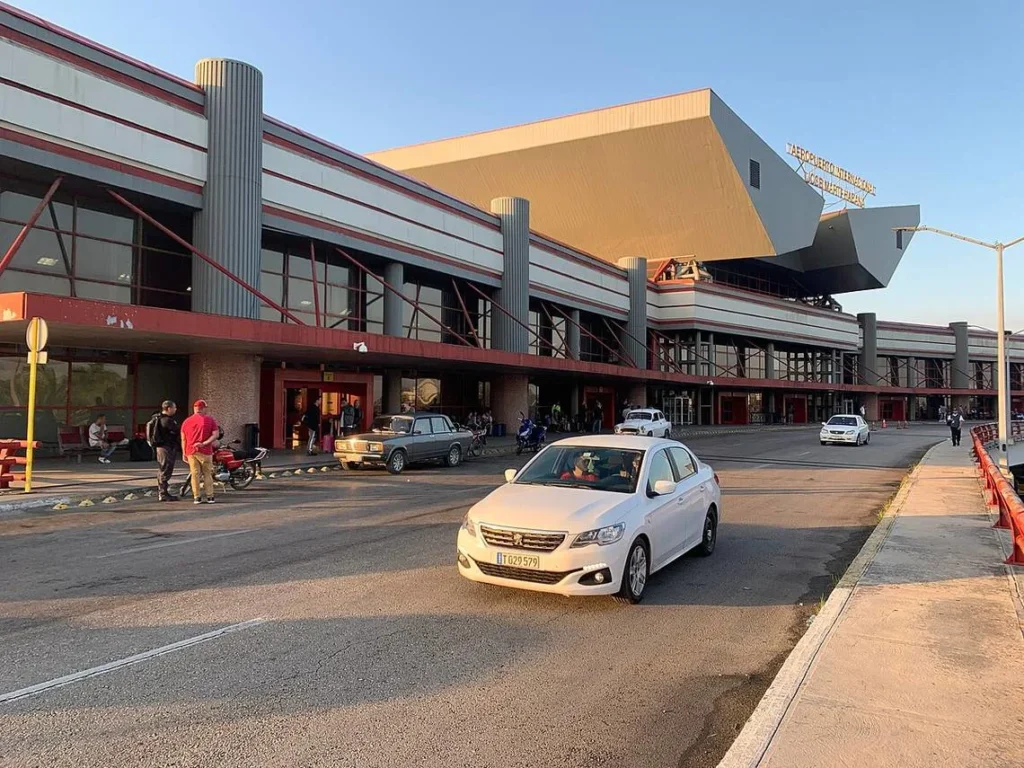WASHINGTON —Nationals of Haiti, Cuba, Nicaragua and Venezuela who have been authorized to come to the United States under a Biden administration humanitarian parole process should not be affected by an ongoing review of the program – unless they had their travel authorizations revoked.
On Saturday, travelers in some destinations were prevented from boarding flights through the federal program, which allows people from the four countries to live and work in the United States for two years.
The development came a day after the Department of Homeland and Security announced it would halt approving travel for new applicants amid concerns of fraud in sponsorship applications. Two sources at Toussaint Louverture International Airport in the Haitian capital of Port-au-Prince said airlines were acting on instruction from U.S. Customs and Border Protection.
A spokesperson from American Airlines, when asked about the stranded passengers, directed questions to U.S. Customs and Border Protection, the Homeland Security agency in charge of approving travel for beneficiaries and then granting them parole once they reach a U.S. airport.
“American continues to comply with the Administration’s Advance Travel Authorization Program, supporting customers entering the United States as part of this program,” Frankie McLister said in an email. Spirit Airlines and JetBlue Airways did not respond to requests for comment.
After Haitians could not travel Saturday, relatives reached out to the Haitian Bridge Alliance, a San Diego- based immigrant advocacy group. Founder Guerline Jozef spent her Saturday trying to get CBP to send in new directives to allow travel for those with authorization.
At least 70 people between the airports in Cap-Haitien and Port-au-Prince were pulled aside on Saturday and told they could not travel to Miami.
“We are very concerned that misinformation and lack of clear directives from the authorities will continue to create panic,” said Jozef.
On Sunday, a Homeland Security spokesperson acknowledged to the Miami Herald in a statement that “some beneficiaries have been notified that the status of their Advance Travel Authorization,” or ATA, had been denied as part of its ongoing review of the program.
“Individuals must have a valid ATA to travel to the United States under these processes,” the spokesperson said. “DHS is working to resume ATA application processing with additional safeguards, as soon as possible.”
Customs and Border Protection also confirmed to Haiti-based Sunrise Airways on Sunday that parolees who had a valid advance travel authorization would be allowed to travel as long as they were admissible into the United States.
The Biden administration launched the humanitarian parole program for nationals of Venezuela in October 2022 before expanding it to people from Cuba, Haiti, and Nicaragua. It’s part of a package of policies that President Joe Biden has rolled out to curb irregular immigration to the southern border and Florida’s shores.
To come to the United States through the program, a U.S.-based sponsor must first submit an application on behalf of a beneficiary and commit to financially supporting them. Those supporters must be U.S. citizens, long-term permanent residents, or hold some form of legal status such as asylum. They must also pass background and safety checks and show that they have the means to maintain the potential beneficiary.
A program participant must also pass vetting and arrange their own travel to an American airport. Once they arrive, a Customs and Border official will then decide whether to grant them parole to enter the country or not.
Nearly half-a-million individuals had been admitted into the U.S. through this process until the end of June, according to Homeland Security statistics. That includes 194,027 Haitians, over 104,130 Cubans, 110,541 Venezuelans and approximately 86,101 Nicaraguans.
On Friday, a DHS spokesperson confirmed to the Herald that the agency had momentarily halted advanced travel authorizations for new beneficiaries “out of an abundance of caution” so it could review sponsorship applications. The agency has not so far identified concerns with the vetting and screening of beneficiaries, which it undertakes through a separate process.
Sources familiar with the situation told the Herald that the agency was in the process of manually screening tens of thousands of applications.
“DHS has review mechanisms in place to detect and prevent fraud and abuse in our immigration processes. DHS takes any abuse of its processes very seriously,” said a spokesperson at the time.
By JACQUELINE CHARLES and SYRA ORTIZ BLANES/Miami Herald

